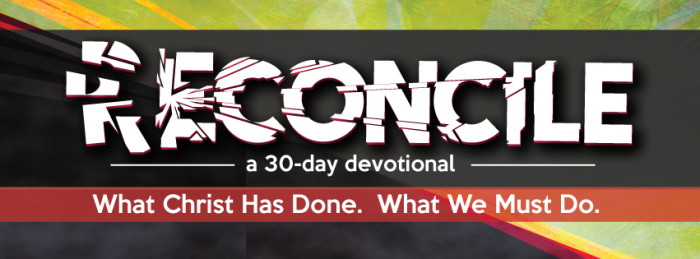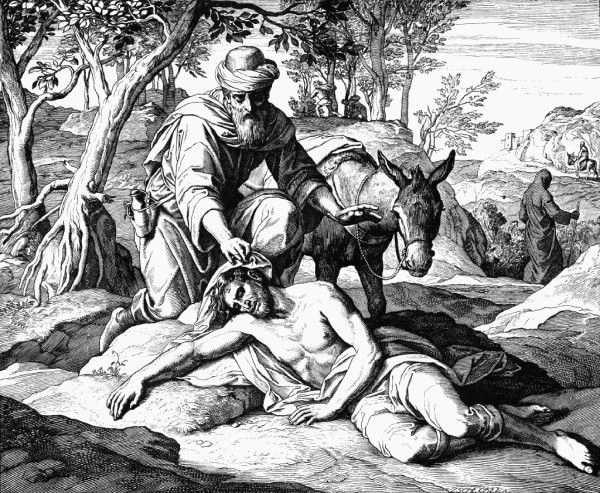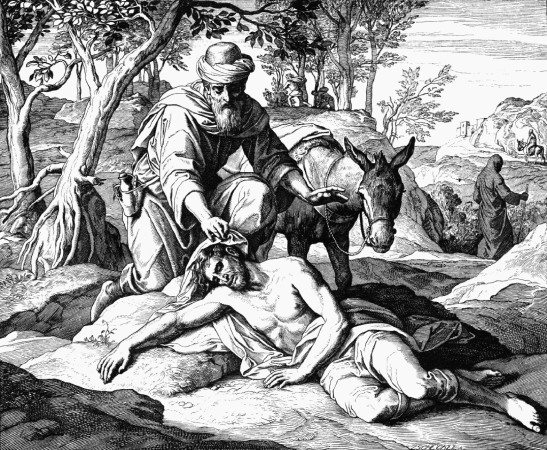
“Which of these three do you think was a neighbor to the man who fell into the hands of robbers?” The expert in the law replied, “The one who had mercy on him.” Jesus told him, “Go and do likewise.” Luke 10:36-37
We thought that we had the answers, it was the questions we had wrong.
— Bono, U2
Sometimes being the “expert” can blind us to the obvious and even keep us from asking the right questions. An expert teacher of the law of the Old Testament found that out quickly in his debate with Jesus described in Luke 10. In the course of their debate, the teacher of the law asks Jesus a question in an attempt to justify himself: “Who is my neighbor?” This turned out to be the wrong question.
 Jesus’ response is the familiar story of the Samaritan who stops on the side of the road to help a man who was robbed, beaten, and left for dead. Overcoming centuries of mutual hatred, racism, and distrust between Jews and Samaritans, the Samaritan traveler, at great financial cost and risk to his own well-being, did what the injured man’s own kinsmen refused to do: showed compassion.
Jesus’ response is the familiar story of the Samaritan who stops on the side of the road to help a man who was robbed, beaten, and left for dead. Overcoming centuries of mutual hatred, racism, and distrust between Jews and Samaritans, the Samaritan traveler, at great financial cost and risk to his own well-being, did what the injured man’s own kinsmen refused to do: showed compassion.
What had started as a theological debate between a teacher of the law and Jesus turned into a deeply personal and probing exposure of the teacher’s empty theology and proud piety. His religious counterparts in the story each cautiously passed by on the other side of the road. Had either one stopped to help, they would have defiled themselves, requiring them to go back to Jerusalem for a long process of purification. Their concern for the preservation of their safety, reputation, and convenience kept them from fulfilling the law. Jesus’ choice of the Samaritan as the hero of the story was a direct affront to the racism, hatred, and theological small-mindeness of the time.
Jesus’ last question to the teacher turned the original question on its head: “Who was a neighbor to the man who fell into the hands of robbers?” The teacher responds correctly, and Jesus replies: “Go and do likewise.” Jesus’ reply challenges us: To whom must we become neighbors? Though our answers may differ, the challenge is to consider whether concern for reputation, convenience, and safety hold us back, and whether we are prepared to confront our own prejudices and biases in order to love as Jesus’ expects.
PONDER: What fears, biases, or prejudices keep you from being a neighbor? To whom is God asking you to be a neighbor?
Comments welcome below.
Past days’ readings HERE.
To receive RECONCILE and later Elmbrook devotionals in your inbox, sign up HERE.

The Mercy of the Lord inhabits our faithfulness… it administers His Justice… we are the steward. We participate in what He is doing. He is worthy…blessed be the Name of the Lord…!
This parable reminds me of the expression “I don’t care what you know until I know that you care.” Every believer, know matter how long we have been on this journey of faith in the Lord Jesus, can live in a way that glorifies His name.
A good piece by Tom. I think the answer lies in your American proverb : “Do not judge a man until you have walked two moons in his moccasins”.
There is a still a very long way to go in your country to achieve true racial integration. In getting there, are the motives a reluctance to be labelled as racist, or an unconditional acceptance of a different race and culture ?
When will Martin Luther King’s words be accepted :
“We may have all come on different ships, but we’re in the same boat now”.
Father, sometimes I find myself protecting my reputation or adhering to some fear, bias or prejudice instead of being the neighbor that you instructed me to be. Lord, my reputation is of no concern if I am NOT doing your will, the truth of the matter is, obedience to your love command is the only reputation worth having…
Lord Jesus, forgive me, sometimes I instinctively limit myself in determining who I am going to help and most of the time that determination is based on, if the person is like me, or will they be able to help me in my time of need. I feel embarrassed to even have that thought process in my head and I repent of it… Lord, I understand not everyone is my brother or sister in Christ, but everyone IS my neighbour, and just as you did, I will show your love to all, regardless of culture, politics, economic standing, or religion, even if it cost everything. Lord, it is your glory that I want dominating my heart, not self preservation…
Holy Spirit, when you lead me to someone who is in need, my first question will not be, “What will happen to ME?” Spirit, fill my heart with the intense love and concern so that my question will always be… “If I do not help this person in need what will happen to THEM?”…
Lord God, the season of obedience is here…